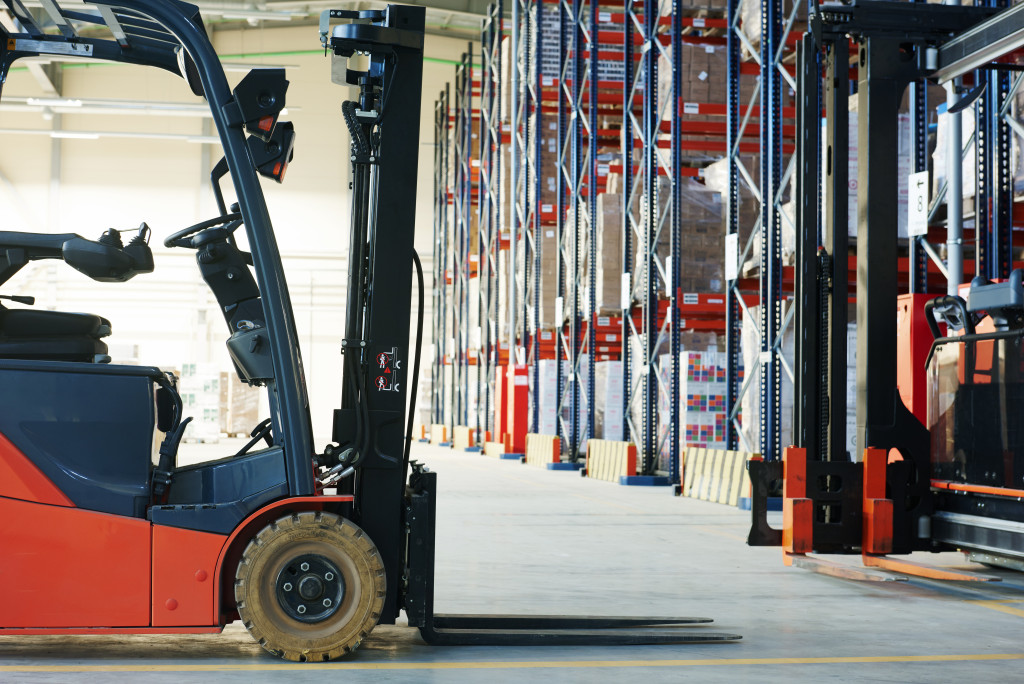- Modern logistics combines digital transformation, AI, data analytics, and effective supply chain management.
- Automation in logistics reduces errors and improves efficiency through robotic systems in warehouses.
- AI in logistics offers optimized routes, demand prediction, and enhanced customer service through chatbots and predictive analytics.
- Efficient supply chain management reduces costs and increases profits through inventory management, demand forecasting, and supplier collaboration.
- Advanced storage solutions, including robotics and AI-powered systems, enhance package safety during transportation.
In today’s fast-paced world, businesses of all sizes need to adapt to the latest technologies and strategies to excel in the market. Logistics is one of those areas that businesses must prioritize to grow and succeed.
The modern logistics system involves an amalgamation of digital transformation, artificial intelligence, data analytics, and efficient supply chain management. With the right tools and tactics, a business can streamline logistics, reduce costs, and increase profits.
Logistics is the backbone of any business operation as it involves planning, implementing, and controlling the movement of goods and services. A lack of efficient logistics can lead to delays, poor customer service, and lost opportunities.
On the other hand, mastering modern logistics can benefit your business with streamlined processes, lower costs, accurate demand forecasting, and superior customer experience.
This post will explore essential strategies and technologies to help you master modern logistics and propel your business to new heights.
Embracing Digital Transformation
One of the significant trends in modern logistics is the shift towards digital transformation. Digital technologies like the Internet of Things (IoT), cloud computing, and blockchain can enhance logistics processes.
Automation
Automation is another technology trend that is changing the face of logistics. By automating repetitive tasks, businesses can reduce errors, increase efficiency, and save time and cost. This pertains to automated warehouses that use robotic systems for material handling, inventory management, and order processing.
AI
Artificial Intelligence (AI) is changing logistics by providing more innovative solutions to complex problems. AI can help businesses optimize routes, predict demand, and enhance customer service. For example, chatbots can provide customers instant responses, and predictive analytics can forecast future demand.
Data Analytics
Data analytics is crucial in modern logistics, providing insights for better decision-making. Businesses can gain visibility into their operations by collecting and analyzing data, identifying inefficiencies, and making data-driven decisions. For instance, data analytics can help businesses optimize inventory levels and reduce order lead time.

Efficient Supply Chain Management
Efficient supply chain management is critical for modern logistics. It involves managing the entire supply chain, including sourcing, production, distribution, and delivery. By implementing the right supply chain management strategies, businesses can reduce costs, improve customer service, and increase profits.
Inventory Management
Inventory management is an essential aspect of efficient supply chain management. By managing inventory levels, businesses can prevent stockouts and overstocking, which can lead to lost sales and higher costs. Tools such as RFID, barcodes, and AI can help businesses track inventory levels more accurately.
Demand Forecasting
Demand forecasting is another critical aspect of efficient supply chain management. By predicting future demand, businesses can plan production and inventory levels accordingly. Accurate demand forecasting can help companies to prevent stockouts and reduce excess inventory.
Supplier Collaboration
Supplier collaboration has become a critical factor in modern logistics. Businesses can reduce lead times, improve quality, and lower costs by working closely with suppliers. Tools such as supplier portals, EDI, and AI can help businesses to collaborate more effectively with suppliers.
Advanced Storage Solutions
One of the significant challenges that logistics companies face is ensuring package safety during transportation. Companies are employing advanced storage solutions to mitigate the risk of package damage or theft.
Robotics and AI-Powered Storage Systems
In recent years, robotics and artificial intelligence systems have become mainstream in the logistics industry. These technologies facilitate the storage and handling of packages, reducing human errors and improving overall efficiency.
Robotics systems have helped automate inventory management, warehouse picking, packing, and package transportation, reducing the number of employees required to complete these tasks.
Battery Backup Storage Units
A battery backup storage container is a specialized enclosure or housing designed to store and protect backup batteries used for maintaining power supply during outages or emergencies.
These containers are engineered to provide a secure environment for storing batteries, often equipped with features such as insulation, ventilation, and safety mechanisms to prevent overheating and ensure the safe storage of batteries.
With the availability of ‘on the go’ battery systems, handling critical packages like lithium-ion batteries is no longer a problem during transportation, providing companies with a means of safeguarding their operations.

In conclusion, mastering modern logistics is essential for businesses to succeed in today’s market. By adopting digital transformation, automation, AI, data analytics, and efficient supply chain management strategies, companies can streamline their logistics process, reduce costs, and increase profits.
With the right tools and tactics, businesses of all sizes can propel their logistics operation to new heights and stay ahead of the competition.
